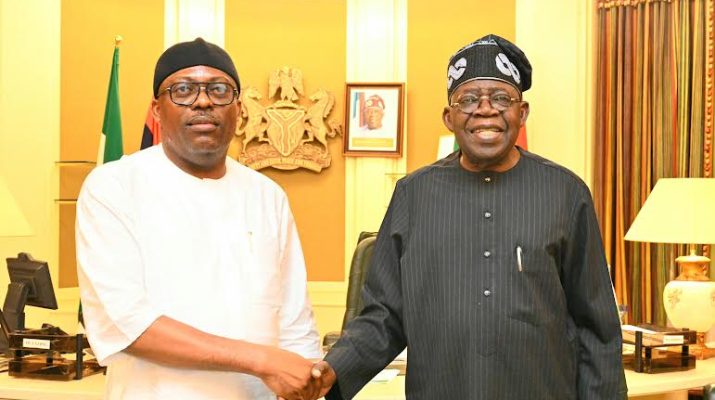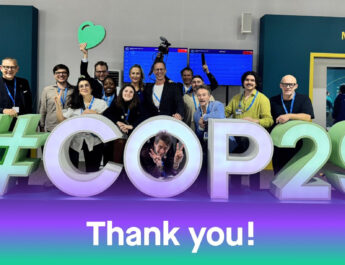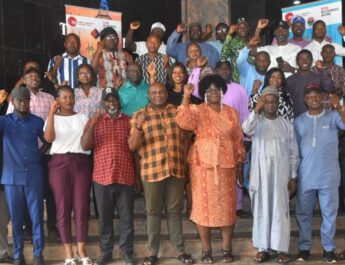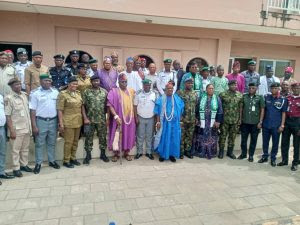Following the reinstatement of Rivers State Governor Siminalayi Fubara on September 18, 2025, the Federal Government hurriedly summons the governor and some Ogoni leaders to explore resumption of oil exploration in the area, fueling suspicion that the government may have concluded plans to resume oil and gas production in the area, while the cleanup issues, which started about a decade ago under the immediate past administration remain largely unresolved and inconclusive
By Edu Abade
In what looks like an unfinished business in its bid to shore up oil output and further deepen revenue for the government, President Bola Ahmed Tinubu hurriedly summoned some Ogoni leaders and Rivers State Governor Siminalayi Fubara to Aso Rock Villa immediately after his reinstatement to negotiate resumption of oil production in the area that has long been devastated by the activities of International Oil Companies (IOCs).
The way and manner in which the government is pursuing resumption of oil exploration that was suspended since 1993 in the heat of the Ogoni crisis that led the killing of the Ogoni Nine remains suspect, especially since the Ogoni cleanup project initiated under former President Muhammdu Buhari administration over 10 years ago, has not been achieved.
However, the Ogoni leaders may have agreed to the deal to resume oil exploration in their devastated land, a development that has agitated the minds of most Nigerians, environmental activists and civil society groups, who have insisted that the recommendations of the United Nations Environment Programme (UNEP) report on the cleanup of Ogoni Land has, to a large extent, not been realized.
They have expressed concern that with the accelerated acquisition of onshore assets of the Nigeria Agip Oil Company (NAOC) by Oando Plc, a company linked to the President, Shell divestment and acquisition of its Nigeria onshore assets by Renaissance Group through a $2 billion facility granted by Shell and Seplat Energy Plc’s acquisition of Mobil Producing Nigeria Unlimited (MPNU), the stakes remain high for the Tinubu-led administration’s vested interest in the oil and gas sector.
Reacting to the desperation of the government to the resumption of oil extraction in Ogoni Land, which analysts say prompted the award of posthumous honours award of merit to Ken Saro-Wiwa and other Ogoni martyrs, some concerned Nigerians and groups have rejected the idea of resuming oil production in the area until cleanup and remediation have been completed.
Specifically, the Movement for the Survival of the Ogoni People (MOSOP) and other groups have rejected Tinubu’s plans to resume in their territory and rather demanded genuine dialogue with the Ogoni people, citing lack of consultations and concerns about the welfare of the people.
In a statement, President of MOSOP, Fegalo Nsuke said the group was “deeply concerned about the implications” of restarting oil production without first addressing long-standing grievances.
“While we remain committed to a permanent resolution of the Ogoni crisis, we express dissatisfaction with the conduct of the Federal Government, which has proceeded without sufficient input from the local people whose farmlands and fishing waters have been affected by past oil activities,” Nsuke stated.
He added that MOSOP was not part of the process that produced the latest report on oil resumption, insisting that the organization and the Ogoni people dissociate themselves from it. Nsuke also reiterated the group’s demand for justice, including the exoneration of the nine Ogoni activists executed in November 1995 and called for “transparent and unbiased negotiations” on civil and economic rights.
Also speaking, Executive Director of the Youths and Environmental Advocacy Centre (YEAC-Nigeria), Dr. Fyneface Dumnamene Fyneface, recalled that oil production in Ogoni was suspended in 1993 after Shell was declared persona non grata, stressing that “the demands of the people as contained in the Ogoni Bill of Rights, as well as issues arising from the 1995 killings, must first be addressed before oil can resume.”
Similarly, the Convener of the Ogoni Development Drive (ODD), Comrade Solomon Lenu, expressed concern over the government’s approach. While acknowledging President Tinubu’s interest in resolving the stalemate, he said the current efforts risk repeating mistakes of the past.
He urged the government to unbundle the OML-11 oil block, which covers over 11,000 square kilometers into smaller blocks and concession at least one to an Ogoni consortium, saying, “That would show a real commitment to ensuring the people benefit directly from oil production.”
Lenu further noted that oil resumption should not be seen as an end in itself but must come with a “clear pathway” for improving the welfare of Ogoni people.
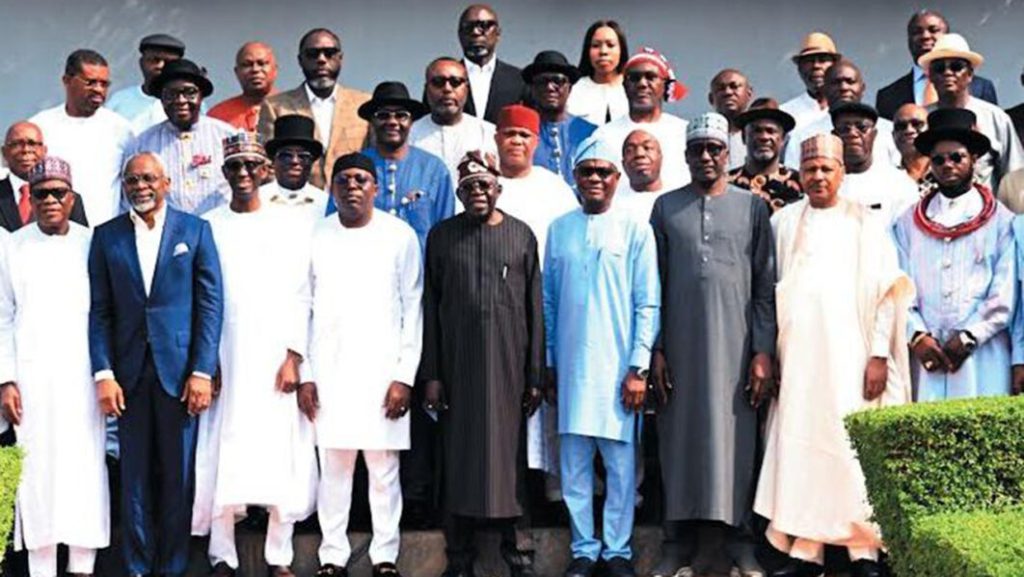
Also responding to the issue that has been described as a racket for the government and its cronies, Executive Director of the Renevlyn Development Initiative (RDI), Philip Jakpor, said the recommendations in the UNEP report were yet to be fully implemented and as such, it was surprising that the Tinubu administration is on a fast track mode to resume oil exploration and extraction in Ogoni Land.
“Even something as simple as the provision of emergency water supply is neither here nor there in terms of reach. That said, the final say on resumption of oil exploration remains the Ogoni people and in doing that, posterity will ask their leaders of today if what is going on now is what the late Ken Saro-Wiwa and other Ogoni martyrs who fought and died for the devastation and injustices in their environment would have wished for.
“Lasting peace and progress can only come to Ogoniland when the cleanup of the pollution caused by Shell is carried out to the letter and the Ogoni on their own decide that oil exploration can now continue. It is within their rights to do so and not something that can be rammed down their throats just because the current administration wants to ramp up our oil volumes or revenue,” he said.
Speaking in an interview, he said, “The rapprochement that President Tinubu is trying to create has drawn a lot of criticism from the Ogoni people and environmentalists in the region because the clean up exercise that the UNEP recommended is yet to be fully implemented and a lot of issues are still left unaddressed.
“There’s been a lot of talk about re-commencement of oil exploration in the region. This has also given rise to the belief that this is all about trying to gloss over the issues as quickly as possible because of the huge deposits of oil in that region. If the issues are not managed in a just and equitable manner it may further complicate the disharmony and precarious situation in Ogoniland and the region.
“I would rather the president ensures that the cleanup exercise and issues such as provision of water in the affected communities are done and those who have suffered injustice get justice before any issue of the sort is brought to the table but like I said earlier on, the Ogoni people must have the final say on resumption of exploration or otherwise.”
Responding, Executive Director, Community Development Advocacy Foundation (CODAF), Benin E. Richard, lamented oil companies’ brazen disregard for the rule of law, contempt for the constitutional rights of Nigerians and the reckless manner in which they endanger human lives, which represents an assault on the collective intelligence of the Niger Delta people and Nigeria as a whole.
“As with other oil producing host communities, we add our voice to the growing chorus of condemnation of the resumption of oil production in Ogoni Land and demand immediate intervention from the highest levels of government. We urge the National Assembly to expedite the hearing and for the Presidency to halt the project immediately.
“And for the Afor Community in Ndokwa East Local Government Area of Delta State, Sterling Oil must not be allowed to bomb a peaceful community with a pipeline. We demand that they adhere to the community-proposed route, engage in meaningful dialogue with legitimate representatives and fully comply with the provisions of the Petroleum Industry Act 2021 regarding compensation and community development. The time for action is now, before this corporate lawlessness leads to an irreversible human and environmental disaster,” he said.
An activist and active critic of the Tinubu government, Omoyele Sowore also accused Wike of diverting $300 Million (an equivalent of N450 Billion in prevailing exchange rate) meant for the remediation and development of Ogoniland into private commercial projects, including the construction of a chain of supermarkets in Port Harcourt, the Rivers State Capital named HyperCity Supermarkets.
Sowore, who claimed that the alleged diversion was documented in a report presented by an Ogoni delegation to the Presidential Villa, Abuja recently, described the act as part of a broader pattern of “unprecedented looting, killings and destruction” allegedly perpetrated by the minister and vowed to continue pushing for accountability and due diligence by public office holders across the country.
“The revelation is that Wike diverted $300 million earmarked for Ogoniland’s remediation and development. Reports indicate that Wike funneled the funds into constructing HyperCity Supermarkets in Port Harcourt. We will not stop until Wike is brought to justice or justice is brought to him for the unprecedented looting, killings, and destruction he has wrought on Nigerians across board,” he stated.
Sowore’s post reignited calls from civil society groups and Ogoni leaders for a full investigation into how funds meant for the recovery, remediation and cleanup of Ogoni Land were managed.
Also speaking in an interview with Tentacle, Executive Director of the Environmental Defenders Network (EDEN), Barrister Chima Williams, said it was not correct to say that nothing significant is happening in Ogoni Land in terms of the cleanup exercise, but it will be correct to say that things are not moving at the pace they should with the investments already made there.
In his words, “The fact is that the longer the Ogoni cleanup lasts, the more problems and the more polluted the area gets. So, there are skeletal works going on, but more can actually be done. It is the collective responsibility of community people, the media, civil society and all stakeholders to put more pressure on the government to do the needful and release funds to those saddled with the responsibility of the cleanup and monitor what is being done, because if the pressure is sustained, the goal will be achieved.
“However, it is a traumatic experience for the Ogoni people and supporters of justice for Ogoni or environmentalists to be talking of resumption of oil production in the area when the issues have not been addressed. We want to cover up everything in the name of politics and our fourth generation to run the national economy. But I think that there are issues on ground that if they are addressed, nobody in his right senses will now begin to talk about resumption of oil operations in Ogoni Land.
“We have always said it and we have told the Federal Government that nobody says they should not resume oil operation in Ogoni, but the issues that created the problems have not been addressed. The root cause of the problems that led to the stoppage of oil operations in Ogoni Land from 1993 till date cannot be swept under the carpet. They have to be reviewed holistically.”

